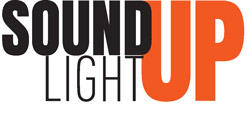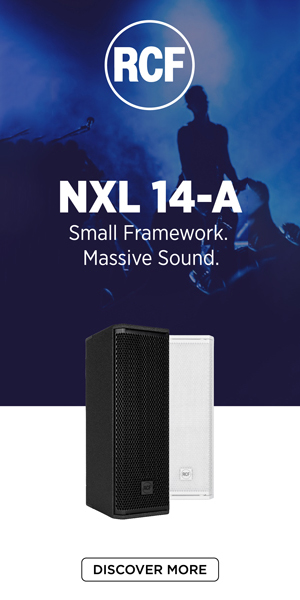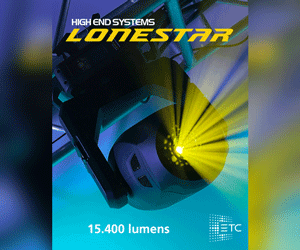This paper is available in too
 Solid State Logic is proud to announce the release of a significant power increase and new V3 software that introduces over 40 new software and hardware features and updates for its SSL Live console range. The new release takes SSL Live consoles to an unrivalled balance of power, features and price.
Solid State Logic is proud to announce the release of a significant power increase and new V3 software that introduces over 40 new software and hardware features and updates for its SSL Live console range. The new release takes SSL Live consoles to an unrivalled balance of power, features and price.
The L500 becomes the L500 Plus to mark the significance of this new release in the ongoing evolution of the acclaimed console. The power of the L500 rises from 192 mix paths to 256 with a doubling of Effects processing power (depending on the effects selected). The L300 also enjoys a power increase from 128 to 192 mix paths.
The Version 3 software release provides an extensive and impressive collection of feature additions to SSL Live consoles, including a superb new Super-Q feature, an optional Dante interface card, Remote Control software, Console Expander Mode, User Interface changes, new Effects, enhancements to the Solo system and a collection of features designed for customers who broadcast their productions.
SSL Live V3 is due for public release in May 2015 and will become standard on all new consoles. Upgrades will be available to bring existing consoles to V3 specification.
New feature highlights
Super-Q
Super-Q is the next generation of Live’s Query function, offering unprecedented workflow flexibility from the touch of a single button. Just like the original Query function, Super-Q allows the user to ‘spill out’ the contributing elements or destinations for a selected fader/path across the control surface. Pressing a channel’s ‘Q’ button shows the mix busses to which the channel is routed. Querying a mix bus will show only the channels that are contributing to that mix. Pressing a VCA’s Q button will show all channels under its Control.
Super-Q also shows the send levels to and from mixes, allowing instant and accurate mix control, either from a channel- or mix-centric view. These contributions can be displayed either on the rotary encoders at the top of each fader strip or automatically ‘flipped’ onto the faders. This can work in either direction; Query an input channel to gain access to its send levels to all mixes, or Query a mix bus to access the send levels from each channel contributing to it. Super-Q has two modes; ‘Compressed’ mode shows a focussed view of only the audio paths contributing to or from the Queried path. ‘Expanded’ mode offers user-defined layers and banks, allowing the user to lay out exactly where they want each channel to appear on the surface.
The modes are configurable on a per-path type basis, giving the user complete control of their workflow. These new features operate in conjunction with the console’s Follow modes that allow any combination of Select, Solo and Query buttons to be linked. This allows, for example, an Aux to be selected to the main screen, Soloed for monitoring and Queried to access its mix sends on faders for only the channels contributing to it, all from the press of a single button. This hugely flexible feature makes SSL Live consoles especially well-suited to monitor mixing.
Remote Control Software
SSL’s SOLSA (SSL Offline Setup Application) software allows creation and editing of Live console Showfiles on your laptop, desktop or tablet PC. Almost anything that can be done on a console can be manipulated and configured using SOLSA. This includes console architecture configuration and setup of Fader Tile Layers and Banks. Stageboxes and I/O routing can also be assigned along with the creation of scenes and other automation editing.
SOLSA also allows you to add effects, manipulate channel processing settings, bus routing and VCA assignments. SOLSA includes the same inline Help System as the Live console software, offering a built in user guide with tutorials and reference sections. The SOLSA PC application can be connected to a console using a wired or wireless connection* for real time control of the console from a laptop or tablet PC. SOLSA can also be used ‘offline’ when access to a console is not possible for preparation of show files. *Wireless access point required.
Dante Interface Option
A new Dante card option offers up to 32×32 channels of I/O at 96 kHz over a redundant Dante connection. The card can be set to operate at 48kHz or 96kHz independently of the rest of the console. The card expands the maximum inputs and outputs for SSL Live consoles from 568 to 600 for an L300 and from 976 to 1008 for an L500 Plus.

Broadcast Friendly Features
Many install customers, particularly Houses Of Worship, require a live production console that can integrate with existing Broadcast infrastructure and/or offer features that are suited to established broadcast audio workflow. SSL has been an industry leading manufacturer of specialist broadcast consoles and that experience has been applied to provide a collection of new features that make SSL Live consoles the perfect choice for these applications. V3 software includes a 48kHz mode to facilitate integration.
New 5.1 and 4.0 audio path formats have been introduced with all of the necessary routing and monitoring required to support them. The Pan system now includes SSL’s Surround Panner and a selection of the Insert Effects now have 4.0 and 5.1 specific versions. Multichannel Fold-down options have been added with settings available to control the steering logic when routing 5.1 or 4.0 formatted paths onto mono, stereo and LCR buses. Solo Dim mode has been added to the newly enhanced Solo system, which now also includes six external solo sources.
Console Expander Mode
Where two operators wish to control the same audio environment or when more physical faders are required, a second console may be connected to the main console. This expands the control surface available and allows multiple surfaces to share the processing and I/O power of the main console. The active automation scene is automatically synchronised between the two control surfaces for simultaneous but independent control.
So Much More
The V3 release also contains a significant collection of individual additions and improvements to the consoles User Interface and Processing Tools. Some highlights include; VCA Control of Matrix Channels, new implementations for the User Assignable Buttons, a superb new stereo version of the Fixed Point Per Octave Analyser called the FPPO-lyser which includes a difference mode, allowing the difference between two signals to be monitored and two sets of crosshairs to track the maximum level/frequency and the level of a specific frequency. BPM & Note based editing has been added to Delay Modules… and stereo channels now have a Balance and Mono Sum Controls.








